Top Qs
Timeline
Chat
Perspective
Academy Award for Best Original Score
Motion picture award for music From Wikipedia, the free encyclopedia
Remove ads
The Academy Award for Best Original Score is an award presented annually by the Academy of Motion Picture Arts and Sciences (AMPAS) to the best substantial body of music in the form of dramatic underscoring written specifically for the film by the submitting composer.[1] Some pre-existing music is allowed, though, but a contending film must include a minimum of original music. This minimum since 2021 is established as 35% of the music, which is raised to 80% for sequels and franchise films.[2] Fifteen scores are shortlisted before nominations are announced.
Remove ads
History
Summarize
Perspective
The Academy began awarding movies for their scores in 1935. The category was originally called Best Scoring. At the time, winners and nominees were a mix of original scores and adaptations of pre-existing material. Following the controversial win of Charles Previn for One Hundred Men and a Girl in 1938, a film without a credited composer that featured pre-existing classical music, the Academy added a Best Original Score category in 1939.[3] In 1942, the distinction between the two Scoring categories changed slightly as they were renamed to Best Music Score of a Dramatic Picture and Best Scoring of a Musical Picture.[4] This marked the first time the category was split into separate genres. From 1942 to 1985, musical scores had their own category, with the exception of 1958, 1981, and 1982. During that time, both categories had many name changes:
|
|
Following the wins of four Walt Disney Feature Animation films in six years from 1990 to 1995 (The Little Mermaid, Beauty and the Beast, Aladdin, and The Lion King) during a period called the Disney Renaissance, it was decided to once again split the Best Original Score category by genres, this time by combining comedies and musicals together. As Alan Bergman, the chairman of the Academy's music branch said, "People were voting for the songs, not the underscores. We felt that Academy members outside the music branch didn't distinguish between the two. So when a score like The Lion King is competing against a drama like Forrest Gump, it's apples and oranges – not in the quality of the score, but in the way it functions in the movie. There's a big difference."[5] The category was therefore split into Best Original Dramatic Score and Best Original Musical or Comedy Score in 1996. This change proved unpopular in the other branches of the Academy as Charles Bernstein, chairman of the Academy's rules committee, noted that "no other Oscar category depended on a film's genre" and "the job of composing an underscore for a romantic comedy is not substantially different from working on a heavy drama."[5] This split was reverted in 2000.
In 2020, rules were changed to require that a film's score include a minimum of 60% original music. Franchise films and sequels must include a minimum of 80% new music.[6] In 2021, the rules were changed again, lowering the minimum percentage of original music from 60% to 35% of the total music in the film.[7]
Remove ads
Academy Award for Best Original Musical
The Academy Award for Best Original Musical is a category that was re-established in 2000 after the Best Original Musical or Comedy Score category was retired. It has never been awarded in its present form due to a prolonged drought of films meeting the sufficient eligibility requirements. The Music Branch Executive Committee of the Academy decides whether there are enough quality submissions to justify its activation.[8]
According to the rules, the Best Original Musical is defined as follows:
An original musical consists of not fewer than five original songs by the same writer or team of writers, either used as voiceovers or visually performed. Each of these songs must be substantively rendered, clearly audible, intelligible, and must further the storyline of the motion picture. An arbitrary group of songs unessential to the storyline will not be considered eligible.[8]
Remove ads
Winners and nominees
Summarize
Perspective
The following is the list of nominated composers organized by year, and listing both films and composers. The years shown in the following list of winners are the production years, thus a reference to 1967 means the Oscars presented in 1968 for films released in 1967.
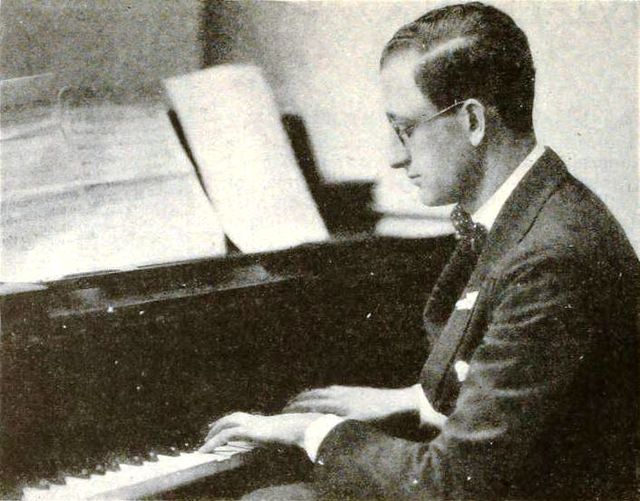




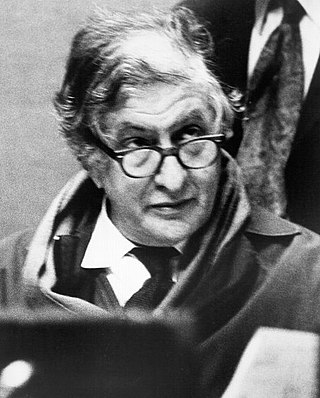


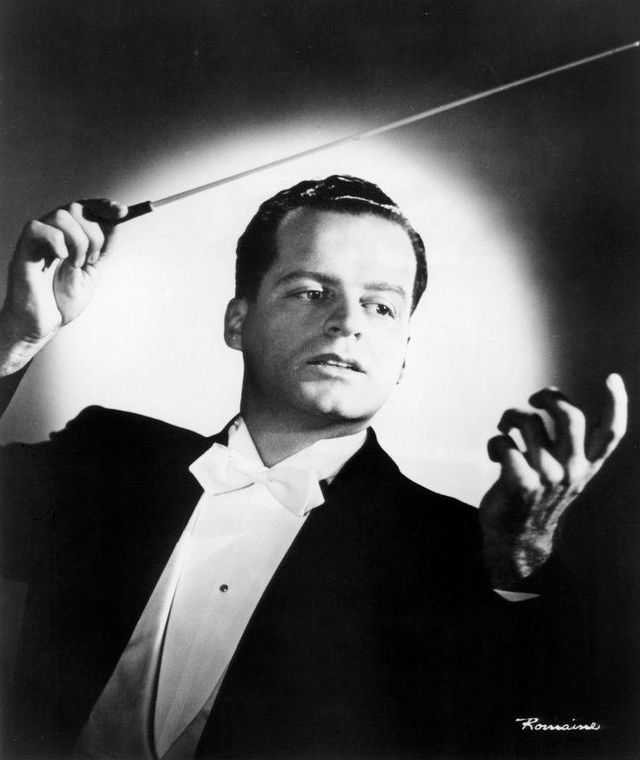
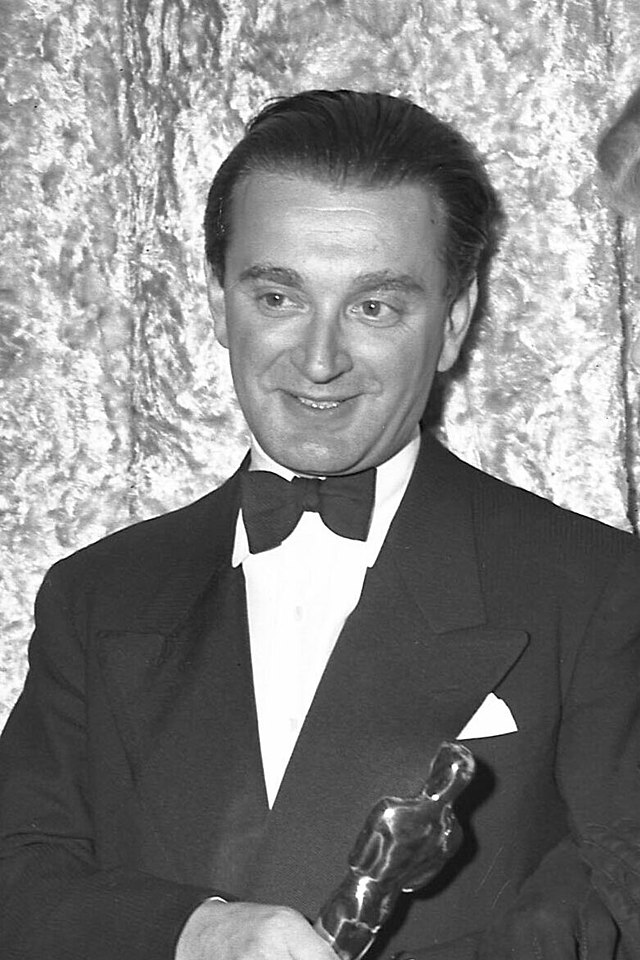

























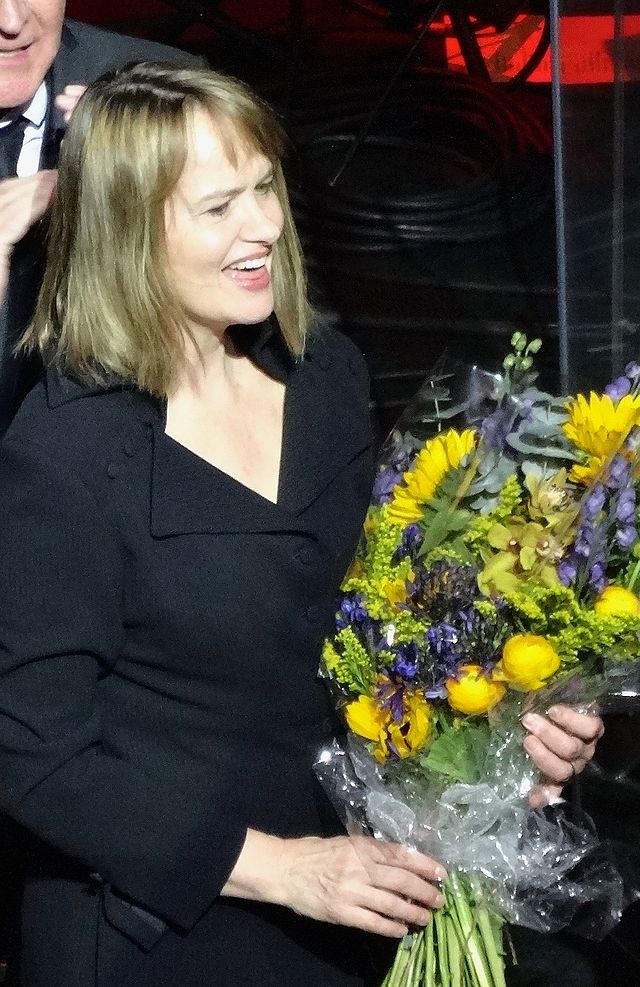




















1930s
1940s
1950s
1960s
1970s
1980s
1990s
2000s
2010s
2020s
Remove ads
Shortlisted finalists
Finalists for Best Score are selected by the Music Branch. Music Branch members shall vote in order of their preference for not more than 15 pictures to be considered for the Score award. The 15 motion pictures receiving the highest number of votes shall advance to the next round of voting. [13]
Remove ads
Records
Summarize
Perspective
Superlatives
These are only for nominations in the Scoring categories. Nominations in other categories, such as the Original Song category, are not included.
Age superlatives
Only one composer has won two Scoring Oscars the same year: in 1973, Marvin Hamlisch won Original Dramatic Score for The Way We Were and Best Adaptation Score, for The Sting. Hamlisch also won Best Song that year for The Way We Were, making him the only composer to win three music Oscars in the same year.
Only one composer has won Oscars three years in a row: Roger Edens won for Easter Parade (1948), On the Town (1949) and Annie Get Your Gun (1950).
Eight composers have won Oscars two years in a row:
- Ray Heindorf won for Yankee Doodle Dandy (1942) and This Is the Army (1943).
- Franz Waxman won for Sunset Boulevard (1950) and A Place in the Sun (1951).
- Alfred Newman won for With a Song in My Heart (1952) and Call Me Madam (1953). He won again two years in a row for Love Is a Many-Splendored Thing (1955) and The King and I (1956).
- Adolph Deutsch won for Seven Brides for Seven Brothers (1954) and Oklahoma! (1955).
- André Previn won for Gigi (1958) and Porgy and Bess (1959). He won again two years in a row for Irma la Douce (1963) and My Fair Lady (1964).
- Leonard Rosenman won for Barry Lyndon (1975) and Bound for Glory (1976).
- Alan Menken won for Beauty and The Beast (1991) and Aladdin (1992).
- Gustavo Santaolalla won for Brokeback Mountain (2005) and Babel (2006).
Female nominees
As of 2025, only 11 women have been nominated in music score categories: Ann Ronell, Tylwyth Kymry, Angela Morley, Marilyn Bergman, Rachel Portman, Anne Dudley, Lynn Ahrens, Hildur Guðnadóttir, Germaine Franco, Laura Karpman, and Camille. Kymry, Bergman, and Ahrens were nominated for their contribution as lyricists.
Four women have won in the scoring categories. Three are composers: Rachel Portman, who won for Emma (1996); Anne Dudley, who won for The Full Monty (1997); and Hildur Guðnadóttir, who won for Joker (2019). The fourth is lyricist Marilyn Bergman, who won for Yentl (1983) in the Original Song Score category, sharing the award with co-lyricist Alan Bergman (her husband) and composer Michel Legrand. Hildur is the only woman to win the award under no qualifications; Bergman won for Best Song Score while Portman and Dudley won for Best Musical or Comedy Score.
The female composers nominated for multiple Scoring Oscars are Rachel Portman, who was nominated for Emma (1996) (for which she won for Best Musical or Comedy Score), The Cider House Rules (1999), and Chocolat (2000); and Angela Morley, who was nominated twice in the Original Song Score or Adaptation Score category for The Little Prince (1974) and The Slipper and the Rose (1976).
Notable nominees
Dmitri Shostakovich and Duke Ellington were both nominated the same year but lost to the arrangers of West Side Story.
The scores of Midnight Express by Giorgio Moroder in 1979, Slumdog Millionaire by A. R. Rahman in 2009, and The Social Network by Trent Reznor and Atticus Ross in 2011 are the only scores with electronic-based music ever to win the award. In addition, the electronic-based scores of Witness by Maurice Jarre in 1986, Rain Man by Hans Zimmer in 1989, and Her by William Butler, and Owen Pallett in 2014 have also been nominated.
Noted nominated composers known for their music mostly outside the film world include: Aaron Copland, Kurt Weill, Gian Carlo Menotti, Philip Glass, John Corigliano, Peter Maxwell Davies, Randy Newman, Richard Rodney Bennett, Stephen Schwartz, Andrew Lloyd Webber, Artie Shaw, Trent Reznor, Quincy Jones, Herbie Hancock, Jon Batiste, and Jonny Greenwood.
Rock musicians and pop stars are most often nominated in the songwriting category. These popular performers were nominated in the Scoring categories: The Beatles, Prince, Pete Townshend, Rod McKuen, Isaac Hayes, Kris Kristofferson, Quincy Jones, Randy Newman, Anthony Newley, Paul Williams, Tom Waits, David Byrne, Ryuichi Sakamoto, Trent Reznor, and Matthew Wilder.
Record producers George Martin (The Beatles) and Jerry Wexler (Atlantic Records) also received nominations in the Scoring categories.
Multiple nominations
The following is a list of composers nominated more than once and winning at least one Academy Award (in this category). This list is sorted by number of awards, with the number of total nominations listed in parentheses. These do not include nominations (or awards) in the Best Original Song category.
- 9: Alfred Newman (43)
- 5: John Williams (49)[k]
- 4: Johnny Green (12)
- 4: André Previn (11)
- 4: John Barry (6)
- 4: Alan Menken (5)
- 3: Max Steiner (24)
- 3: Ray Heindorf (17)
- 3: Morris Stoloff (17)
- 3: Miklós Rózsa (16)
- 3: Dimitri Tiomkin (14)
- 3: Maurice Jarre (8)
- 3: Ken Darby (6)
- 3: Roger Edens (6)
- 3: Saul Chaplin (5)
- 3: Adolph Deutsch (5)
- 2: Hans Zimmer (12)
- 2: Alexandre Desplat (11)
- 2: Franz Waxman (11)
- 2: Henry Mancini (7)
- 2: Lennie Hayton (6)
- 2: Michel Legrand (6)
- 2: Irwin Kostal (5)
- 2: Marvin Hamlisch (4)
- 2: Leonard Rosenman (4)
- 2: Ralph Burns (3)
- 2: Trent Reznor (3)
- 2: Atticus Ross (3)
- 2: Howard Shore (3)
- 2: Ludwig Göransson (2)
- 2: Gustavo Santaolalla (2)
- 1: Jerry Goldsmith (17)
- 1: Victor Young (17)
- 1: Herbert Stothart (11)
- 1: Elmer Bernstein (10)
- 1: Hugo Friedhofer (9)
- 1: Lionel Newman (9)
- 1: Georgie Stoll (9)
- 1: James Horner (8)
- 1: Leigh Harline (7)
- 1: Charles Previn (7)
- 1: Paul Smith (7)
- 1: Dave Grusin (6)
- 1: Ennio Morricone (6) Also received an Academy Honorary Award.
- 1: Leslie Bricusse (5)
- 1: Georges Delerue (5)
- 1: Richard Hageman (5)
- 1: Bernard Herrmann (5)
- 1: Nelson Riddle (5)
- 1: Oliver Wallace (5)
- 1: Aaron Copland (4)
- 1: Leo F. Forbstein (4)
- 1: Ernest Gold (4)
- 1: Stephen Schwartz (4)
- 1: Richard M. Sherman (4)
- 1: Robert B. Sherman (4)
- 1: Louis Silvers (4)
- 1: Volker Bertelmann (3)
- 1: Frank Churchill (3)
- 1: Elliot Goldenthal (3)
- 1: Erich Wolfgang Korngold (3)
- 1: Bronisław Kaper (3)
- 1: Dario Marianelli (3)
- 1: Rachel Portman (3)
- 1: Harry Sukman (3)
- 1: Gabriel Yared (3)
- 1: John Addison (2)
- 1: Luis Bacalov (2)
- 1: Robert Russell Bennett (2)
- 1: Jay Blackton (2)
- 1: John Corigliano (2)
- 1: Michael Giacchino (2)
- 1: Michael Gore (2)
- 1: W. Franke Harling (2)
- 1: Justin Hurwitz (2)
- 1: A. R. Rahman (2)
- 1: Heinz Roemheld (2)
- 1: Nino Rota (2)
- 1: Leo Shuken (2)
The following composers have been nominated for a Best Original Score Oscar more than once but have yet to garner one. The number of nominations is listed in parentheses. These do not include nominations (or awards) in the Best Original Song category.
Deceased
- Alex North (14) Received an Academy Honorary Award.
- Walter Scharf (9)
- Roy Webb (7)
- Werner Janssen (6)
- George Duning (5)
- Lalo Schifrin (5) Received an Academy Honorary Award.
- Edward Ward (5)
- Constantin Bakaleinikoff (4)
- Edward H. Plumb (4)
- Frank Skinner (4)
- Frank De Vol (4)
- Richard Rodney Bennett (3)
- George Bruns (3)
- Louis Gruenberg (3)
- Marvin Hatley (3)
- Quincy Jones (3) Has won the Jean Hersholt Humanitarian Award, a special Academy Award.
- Ernst Toch (3)
- Charles Wolcott (3)
- Daniele Amfitheatrof (2)
- Nat W. Finston (2)
- Frederick Hollander (2)
- Jóhann Jóhannsson (2)
- Jack Nitzsche (2) Has won 1 Oscar Award for Original Song.
- Richard Robbins (2)
- Victor Schertzinger (2)
- Meredith Willson (2)
Living
- Thomas Newman (14)
- Randy Newman (9) Has won 2 Oscar Awards for Original Song.
- James Newton Howard (7)
- Danny Elfman (4)
- George Fenton (4)
- Alberto Iglesias (4)
- Marc Shaiman (4)
- Philip Glass (3)
- Nicholas Britell (3)
- Carter Burwell (3)
- Marco Beltrami (2)
- Terence Blanchard (2)
- Patrick Doyle (2)
- Jonny Greenwood (2)
- David Hirschfelder (2)
- John Powell (2)
Remove ads
See also
- Academy Award for Best Original Song
- BAFTA Award for Best Original Music
- Critics' Choice Movie Award for Best Score
- Golden Globe Award for Best Original Score
- Grammy Award for Best Instrumental Composition
- Grammy Award for Best Pop Instrumental Performance
- Grammy Award for Best Score Soundtrack for Visual Media
- Grammy Award for Best Compilation Soundtrack for Visual Media
- Grammy Award for Best Arrangement, Instrumental or A Cappella
- Saturn Award for Best Music
- List of Academy Award–nominated films
Remove ads
Notes
- From 1934 until 1937, nominated films were represented by the head of the film studio's music department rather than the composer. Each film's actual composer(s) are listed in parentheses.
- Captain Blood was not officially nominated for this award, but appears in Academy records because it placed third in voting as a write-in candidate in 1935.
- From 1937 until 1945, film studios could submit one eligible film of their choosing, guaranteeing it a nomination.
- Blacklisted composer Larry Adler's name was removed from American prints of the British-made Genevieve. The film's arranger and orchestrator Muir Mathieson was credited instead and received an Oscar nomination. In 1986, the Academy's Board of Governors removed Mathieson's name from the nomination and gave it to Adler.
- In 1957, dramatic and comedy films competed with musicals in a combined category called Music – Scoring. Fifteen scores were shortlisted with ten from dramatic and comedy films and five from musicals. Voting resulted in no musical nominees.
- Limelight was originally released in 1952, but had never screened theatrically in Los Angeles until 1972, at which point it became eligible for Oscar consideration.
- Nino Rota was nominated for The Godfather in 1972, but the nomination was revoked after it was discovered Rota had reused music from the 1958 Italian film Fortunella. The Academy's entire music branch revoted for a fifth nominee. They could either renominate Rota for The Godfather or select one of the five other shortlisted scores: Ben by Walter Scharf, Fellini's Roma by Rota, The Life and Times of Judge Roy Bean by Maurice Jarre, The Other by Jerry Goldsmith, or Sleuth by John Addison. Sleuth received the most votes and became the fifth nominee.
- From 1995 until 1998, Best Original Score was split into Original Dramatic Score and Original Musical or Comedy Score. For musicals and comedies, songwriters and lyricists along with orchestral underscore composers were eligible for nomination.
- Lisa Gerrard and Klaus Badelt also received screen credit for the Gladiator score, but only Zimmer was deemed eligible for the nomination.
- The eligibility period for the 93rd ceremony was exceptionally extended through to February 28, 2021, due to the impact of the COVID-19 pandemic.
- Also received 5 nominations for Best Original Song, which brings his total to 54 – the most nominated person in all of the music categories combined, and the most nominated living individual in any Oscars category
Remove ads
References
External links
Wikiwand - on
Seamless Wikipedia browsing. On steroids.
Remove ads

